
SLE’25#1: A New DSL Textbook in Town!
Thorsten Berger, Ruhr University Bochum (Germany)
Time: Thu 12 Jun 2025, M 001, 09:15
DSLs are the ultimate abstraction in software engineering. While programming languages have – since the advent of computers – continuously increased their level of abstraction, they are still limited to the domain of computing, with their instances containing many technicalities. Unlike programming languages, DSLs reflect a given application domain, ideally abstracting away anything beyond it. Recognizing their strengths, the programming-language and the software-engineering community introduced many technologies for engineering DSLs. While well-polished widely-used DSLs have existed for a long time (e.g., SQL, regular expressions, HTML), language engineering technologies have made great progress over the last two decades, allowing developers who are not language or compiler experts to create their own DSL – in order to increase the level of automation for their projects. In the keynote, I will report on our decade of experiences from teaching DSL engineering. I will especially present our recent book (see http://dsl.design). Andrzej Wasowski and I wrote it to: establish more of an engineering perspective for creating DSLs, teaching the problem-oriented creation of DSLs and different engineering activities including testing and requirements (domain analysis); bring the programming language and software-engineering community together by teaching solutions from both fields – many of which overlap conceptually – and thereby unifying and integrating them; demonstrate how to use a modern functional and object-oriented language, Scala, to engineer internal and external DSLs, while not limiting the presentation to a single programming language provide a large number of exercises (277 in total) for effective learning, like mathematics textbooks do; and contribute a large number of examples where DSLs are effective, with a whole chapter on DSLs for creating software platforms (a.k.a. product lines).
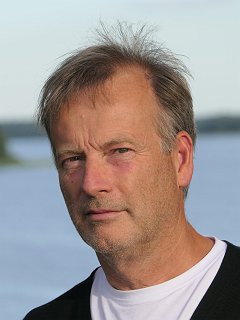
SLE’25#2: Can Programming Be Liberated from the Functional Style?
Friedrich Steinmann, Fernuniversität Hagen (Germany)
Time: Fri 13 Jun 2025, M 001, 09:15
In his 1977 ACM Turing Award Lecture, John Backus identified the word-at-a-time style of programming, inherited from the underlying hardware and dubbed the “von Neumann bottleneck”, as a major obstacle to the advancement of programming. In this keynote, I argue that functional programming introduced another bottleneck: that everything produced by a computation (including nothing) must be encoded as a single value. This “obligation to singularity” is foreign to modelling, where single values sit collegially between no values and two values. Exploring diverse examples, I will argue that adopting a modelling (de facto: relational) style of programming eliminates the functional bottleneck, and with it many of the data-to-control flow escapes that Backus originally sought to avoid.

ECMFA’25: Formal Modeling and Verification of Safety-Critical Systems
Matthias Volk, TU Eindhoven
Time: Tue 10 Jun 2025, M 001, 09:30
Safety-critical systems require rigorous analysis to guarantee their safe, reliable, and correct operation. In this talk, I will discuss the importance of formal modeling and model checking in the design and analysis of such systems. Our approach is based on probabilistic models, specifically Markov chains, to explicitly capture uncertainties, such as the probability of component failures. These models can then be analyzed using probabilistic model checking, enabling the evaluation of a wide range of quantitative metrics and supporting a variety of analysis techniques. The talk will focus on (dynamic) fault trees, a prominent reliability model that describes how failures occur and propagate through a system. Despite their intuitive graphical representation, dynamic fault trees have intricate semantics that require careful formalization. We translate the fault trees into Markov chains to enable efficient and automated analysis via model checking. I will illustrate the benefits of this approach with an industrial case study on autonomous vehicles. Finally, I will present ongoing research on automatically learning fault tree structures from failure data. By combining genetic algorithms with structural information, we aim to synthesize fault trees that are both accurate and concise - paving the way toward data-driven, model-based safety analysis.
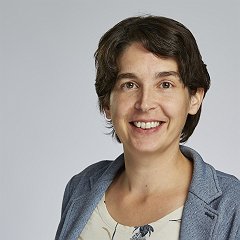
ECMFA’25#2: Modeling and LLMs in Continuous Software Engineering
Anne Koziolek, Karlsruhe Institute of Technology (Germany)
Time: Wed 11 Jun 2025, M 001, 9:15
The notion of continuous software engineering extends practices like continuous integration to view the entire software development lifecycle as a continuous, interconnected flow of activities. At the same time, recent advances in large language models (LLMs) have revolutionized the way machines process natural language—language that plays a central role throughout software engineering, from requirements elicitation and design discussions to documentation. In this talk, I will outline a vision for the role of models in continuous software engineering, focusing particularly on their use in design activities. I will argue that models will remain central to software engineering, even in an era of AI-assisted development, and explore what future design assistants might look like. One key capability of such assistants will be the ability to establish and use trace links between artifacts. I will present recent results showing how LLMs, combined with heuristic techniques, can achieve high precision and recall in this task. Looking ahead, I will share our vision for how model-driven techniques can support more agile development of cyber-physical systems, and our ideas how LLMs can contribute to realizing the long-standing goal of model consistency. Finally, time permitting, I will also reflect on the use of LLMs in navigating software engineering literature and research data.

ICGT’25#1: Instantiation Calculus
Nicolas Behr, CNRS, Université Paris Cité, IRIF (France)
Time: Wed 11 Jun 2025, M 201, 09:00
Recent advances in applied category theory and the maturation of proof assistants such as Rocq [1] (formerly Coq), Isabelle/HOL, and Lean have opened new frontiers for formalizing complex mathematical structures. Among these, the algebraic approach to graph rewriting—rooted in rich categorical foundations—offers a compelling case for mechanized reasoning. This presentation focuses on recent advancements in creating an interactive framework based on Rocq for certifying diagrammatic proofs in graph transformation theory. At the core of this work is the Instantiation Calculus, a new formalism developed as part of the ANR CoREACT project [2]. This calculus utilizes a specific type of hyperdoctrines to rigorously encode diagrammatic proofs. We will demonstrate how this calculus facilitates the formalization of essential reasoning patterns in theoretical graph transformation, while also exploring its potential for broader applications in graph rewriting theory.
ICGT’25#2: Consistency in the View-Based Development of Cyber-Physical Systems
Eric Burger, Karlsruhe Institute of Technology (Germany)
Time: Thu 12 Jun 2025, M 201, 09:00
Modern cyber-physical systems (CPS) such as cars, production plants, or energy networks integrate computational processes with physical processes. Due to their size and complexity, they are modelled by engineers with multiple, heterogeneous tools and modelling languages, which provide role-specific views. At the same time, these systems can only function if all parts interact seamlessly, which is only possible if models are consistent with each other. Consistency management becomes the key task in managing the complexity of modern, cyber-physical system. In this talk, I will present ongoing research in the “Convide” project (https://www.sfb1608.kit.edu/) and the Vitruvius approach (https://vitruv.tools/), which demonstrate that model-driven technologies and especially transformations are not a thing of the past, but at the core of solutions to improve the adaptability, reliability, and security of modern CPS.

AI4DPS’25 Invited Talk: Generative KI in der Verwaltung
Stefan Kaufmann, Wikimedia Deutschland e. V. (Germany)
Time: Wed 11 Jun 2025, D 239, 11:00
TBA

AI4DPS’25 Invited Talk: From Files to Agents: How Generative AI Transforms Case Handling and Accelerates Citizen-Centric Public Administration
Sharam Dadashnia, Insiders Technologies
Time: Wed 11 Jun 2025, D 239, 13:30
Public administrations are under pressure to modernize outdated, document-heavy processes while coping with a shortage of skilled staff and rising citizen expectations. Generative AI (GenAI) presents new opportunities to automate case handling and accelerate digital transformation. This talk presents a technical and process-oriented perspective on how Agentic AI can move beyond document understanding to autonomously support and execute public sector workflows.

ICMM’25: Consistency Management: Successful Practice Meets Research Needs
Heiko Klare, Vector Informatik GmbH (Germany)
Time: Thu 12 Jun 2025, D 239, 13:30
Consistency management in modeling: a broad topic. Individual notions of this are rarely the same but depend on the needs of the respective context. What they have in common is that it is about consistency within one or between multiple models. But what does it mean for models to be consistent? And do we only want to document it, validate it, or even enforce it automatically? The everyday experience of many engineers is still that notions of consistency tend to be implicit or at least unformalized. Checking or maintaining it is often a manual task. In this talk, we will combine views on the topic of consistency management from research and industrial practice: What kinds of consistency and consistency management are of actual interest? How do theoretical concepts relate to approaches applied in practice and which of these approaches work well despite theoretical limitations? And where do we need better concepts and research to address requirements from practice? We will bring together a research-oriented view of integrated and distributed consistency validation and preservation with practical experience from the PREEvision tool. It is an integrated tool for holistic development of electric/electronic architectures that covers the information needs of many engineers in a single model. However, even such an integrated approach requires internal mechanisms for ensuring consistency of the complex information inside that single model. The consistency management concepts and techniques it implements will give us an impression of how foundational concepts are combined with sufficient pragmatics and what practical benefits have already been achieved. Beyond this state of practice, we will take a look at increasing demands on consistency management in modularized, distributed development, deployment, and update. Finally, based on the resulting challenges, we will highlight where foundational research is needed to ensure the future success of consistency management in practice.
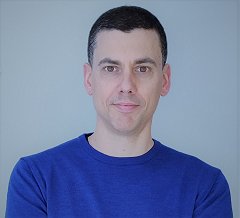
AgileMDE’25: Models in Motion: Agile MDE for Continuous Adaptation
Artur Boronat, University of Leicester (United Kingdom)
Time: Wed 11 Jun 2025, D 238, 11:00
This session kicks off the Agile MDE track with a keynote on the evolving role of Agile Model-Driven Engineering (MDE) in adaptive systems. It explores cutting-edge applications, from digital signal processing to integrating large language models (LLMs) in agile software development workflows. Presentations focus on the synergy between agility and automation in modern engineering environments.
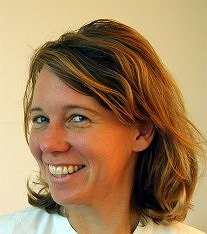
LLM4SE’25: LLMs for Software Engineering: What does that mean for model-driven software development?
Gabriele Taentzer, Philipps-Universität Marburg (Germany)
Time: Thu 12 Jun 2025, D 238, 09:00
Large language models (LLMs), such as Copilot and ChatGPT, have received considerable attention from software engineering (SE) researchers and practitioners. Recent SE publications show that applying LLMs to specific SE tasks is a major trend. As such, LLMs have the potential to transform software development and evolution processes. In this talk, we look at how LLMs are being applied to selected SE tasks and discuss the implications of this trend for model-driven software development.
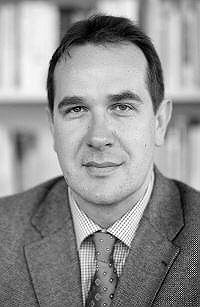
OOPSLE’25#1: Adressing the "Engineering" in "Software Language Engineering"
Bernhard Rumpe, RWTH Aachen University
Time: Wed 11 Jun 2025, B 013, 11:00
Till now development of a new software language is far too often an artistic handwork and reminds us on the state of software development from 50 years ago. To apply the “engineering” as a systematic methodological approach to software language definitions, we address several outstanding topics, such as lack of semantics, language libraries, compositionality, extensibility and variant management in languages and their tools. We also examine the state of the art and discuss possible solutions.
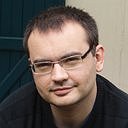
OOPSLE’25#2: Who will create the languages of the future? (hint: probably not a team of language engineers!)
Jordi Cabot, Luxembourg Institute of Science and Technology (Luxembourg)
Time: Wed 11 Jun 2025, B 013, 13:30
Software is eating the world. Which means that we need good languages to write all this software. And, often, come up with “new” languages to be able to efficiently target new software domains and technologies. In this talk, we will explore the changing landscape of language engineering and discuss how Artificial Intelligence and low-code/no-code techniques can play a role in this future by helping in the definition, use, execution, and testing of new languages. Even empowering non-tech users to create their own language infrastructure. Maybe without them even realizing.
Bio: I’m the head of the Software Engineering Unit at the ITIS department of the Luxembourg Institute of Science and Technology (LIST). Previosly, I’ve been an ICREA Research Professor at Internet Interdisciplinary Institute, the research center of the Open University of Catalonia (UOC) where I led the SOM Research Lab. I was also Visiting Professor at the Western Norway University of Applied Sciences, associate professor at École des Mines de Nantes as part of an Inria International Chair and postdoc at the University of Toronto. My research falls into the broad area of systems and software engineering, especially promoting the rigorous use of software models and engineering principles in all software engineering tasks while keeping an eye on the most unpredictable element in any project: the people involved in it. Current research topics include pragmatic formal verification techniques, analysis of open source communities, open data exploitation and the role AI can play in software development (and vice versa). Let’s use all the tools at our disposal to build Better Software Faster.

OOPSLE’25#3: Let’s Make Abstraction Engineering Fun Again
Antonio Cicchetti, Mälardalen University (Sweden)
Time: Wed 11 Jun 2025, B 013, 15:30
Model-Driven Engineering has witnessed a technological revolution with the advent of rich web interfaces. A part of the consequences is visible in the widespread adoption of Low-/No-code development platforms. From a software language engineering perspective, nowadays many language workbenches are web-based (or provide a web-based alternative). In this talk I will discuss recent experiences with the development and adoption of a “native” web-based language workbench called JJODEL. In particular, the advanced web interfaces disclose the support for interesting MDE-relevant features, notably flexible concrete syntaxes, language co-evolution, and collaborative development.
Bio: Antonio Cicchetti is an Associate Professor in Software Engineering at Mälardalen University, Innovation, Design, and Engineering department (IDT), in Västerås, Sweden. He is co-leader of the Automated Software language and SOftware engineering (ASSO) research group, which focuses on automating the engineering of software (programming/modelling) languages and software by applying advanced computation and data manipulation. Antonio is interested in the many issues related to industrial adoption of model-based system and software engineering paradigms, notably language engineering and adoption, automation supported by model transformations, consistency management, continuous development, etc. Moreover, Antonio is interested in the design of gamification systems and digital twins.